Chiaki Sweater
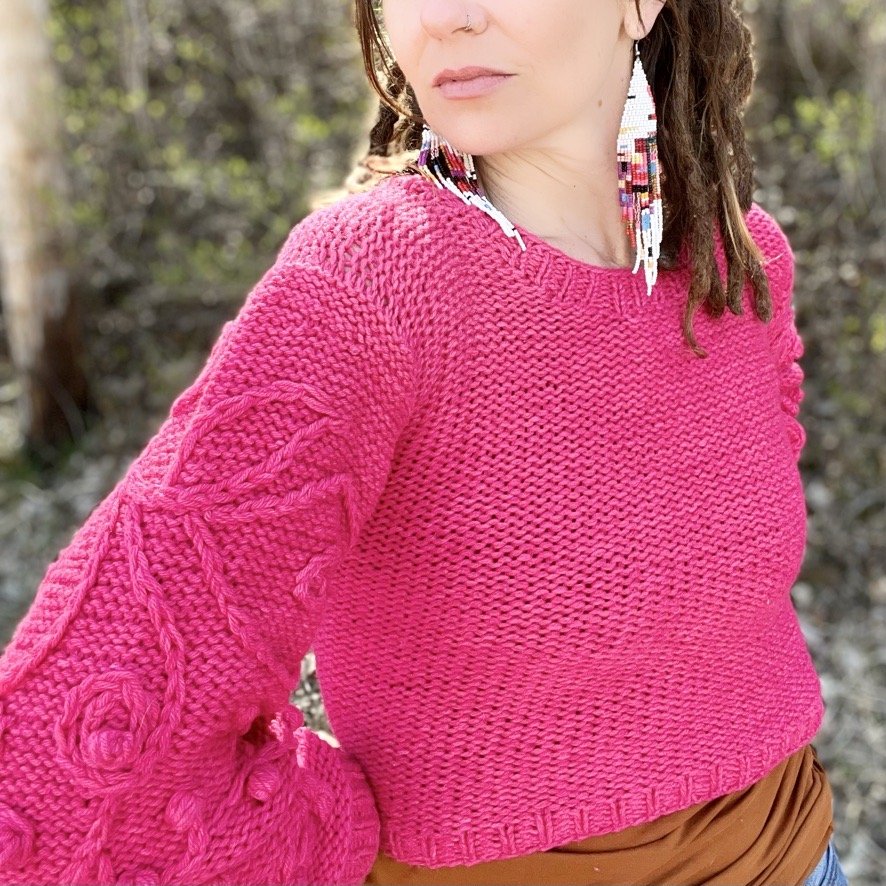
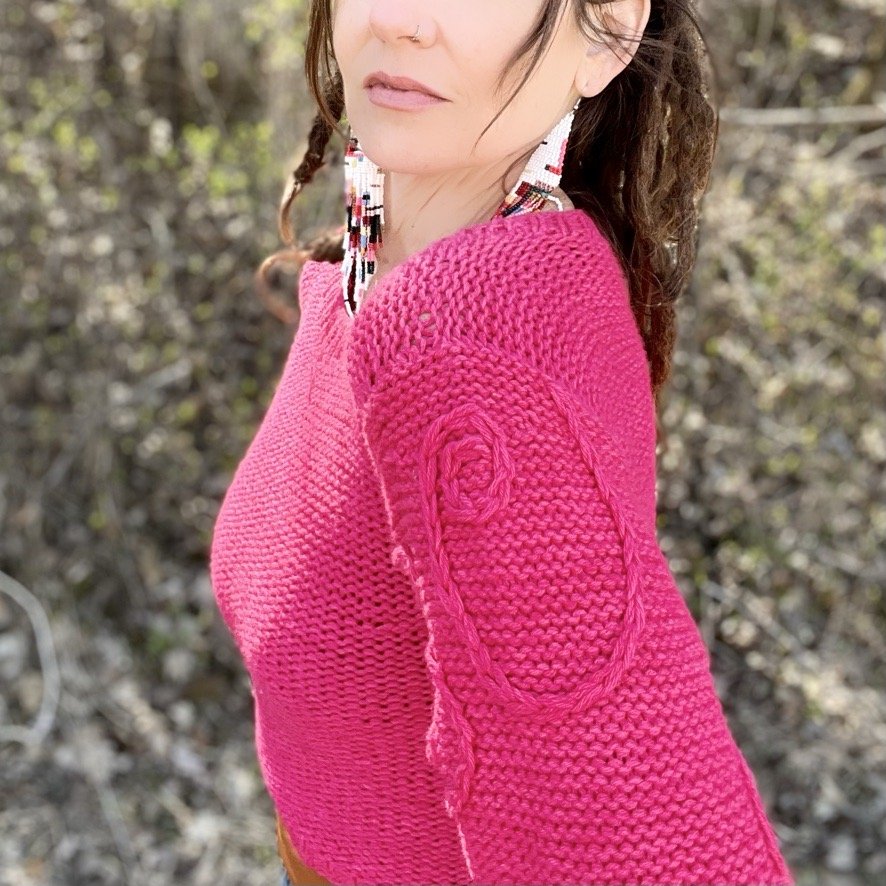


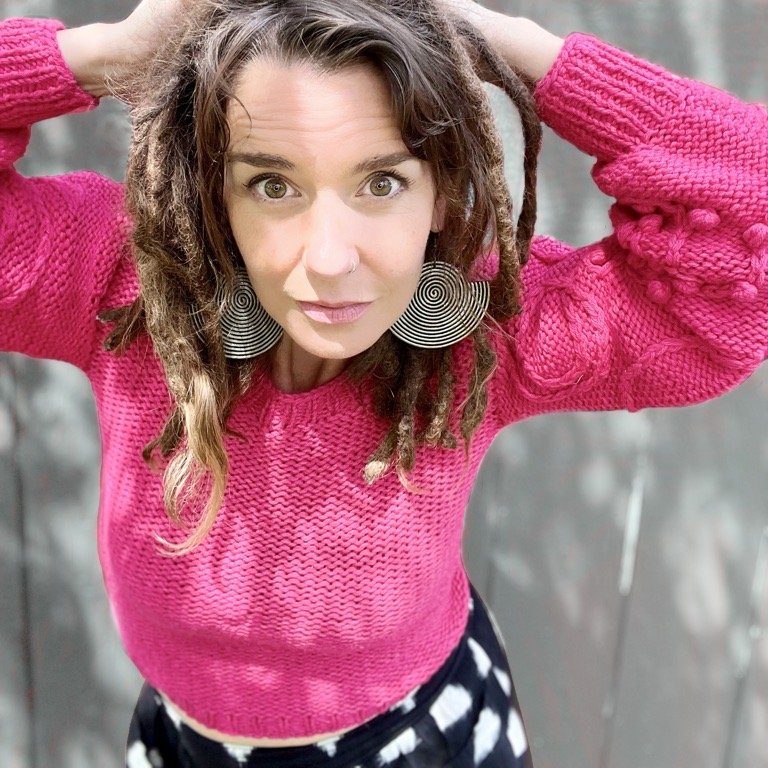
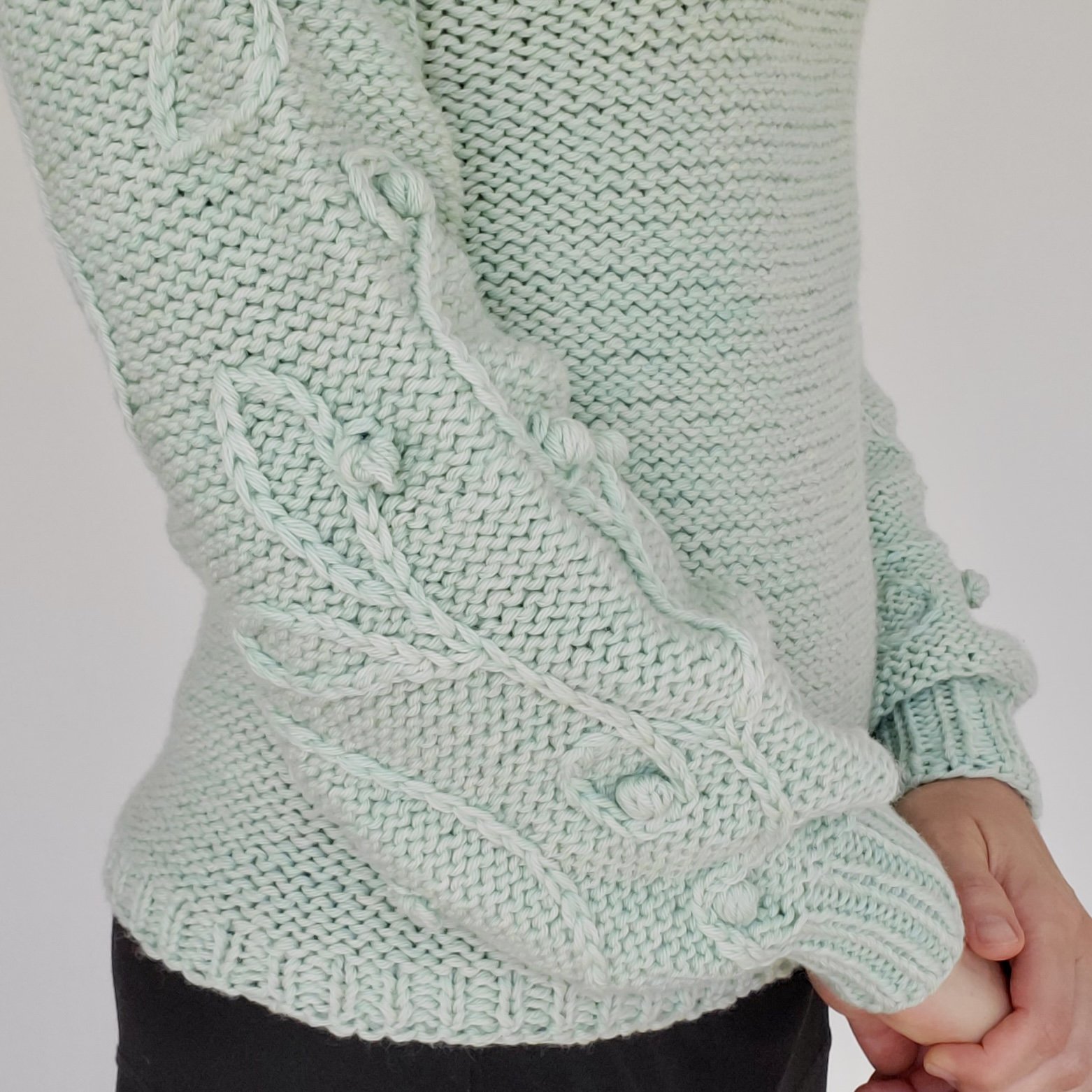
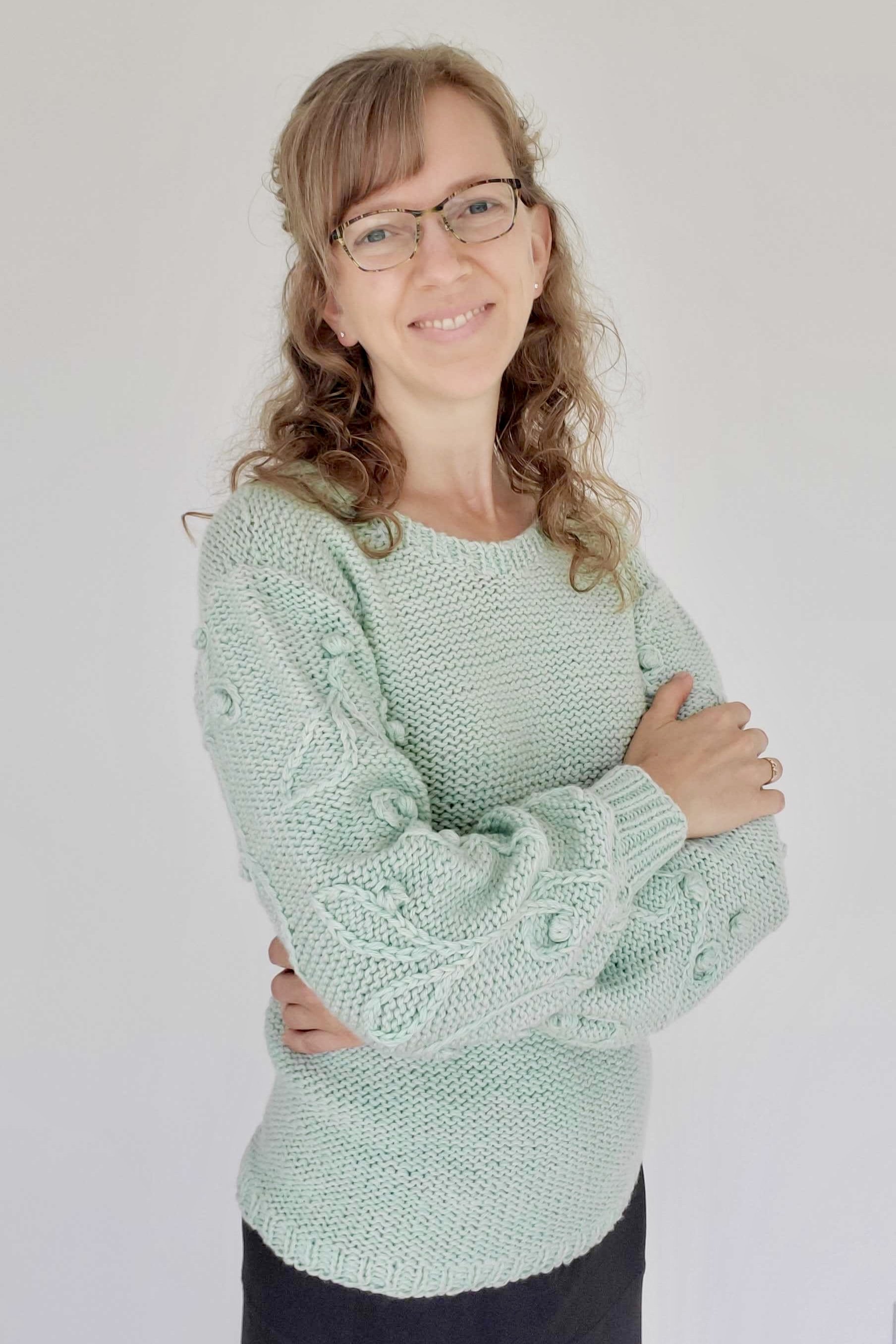
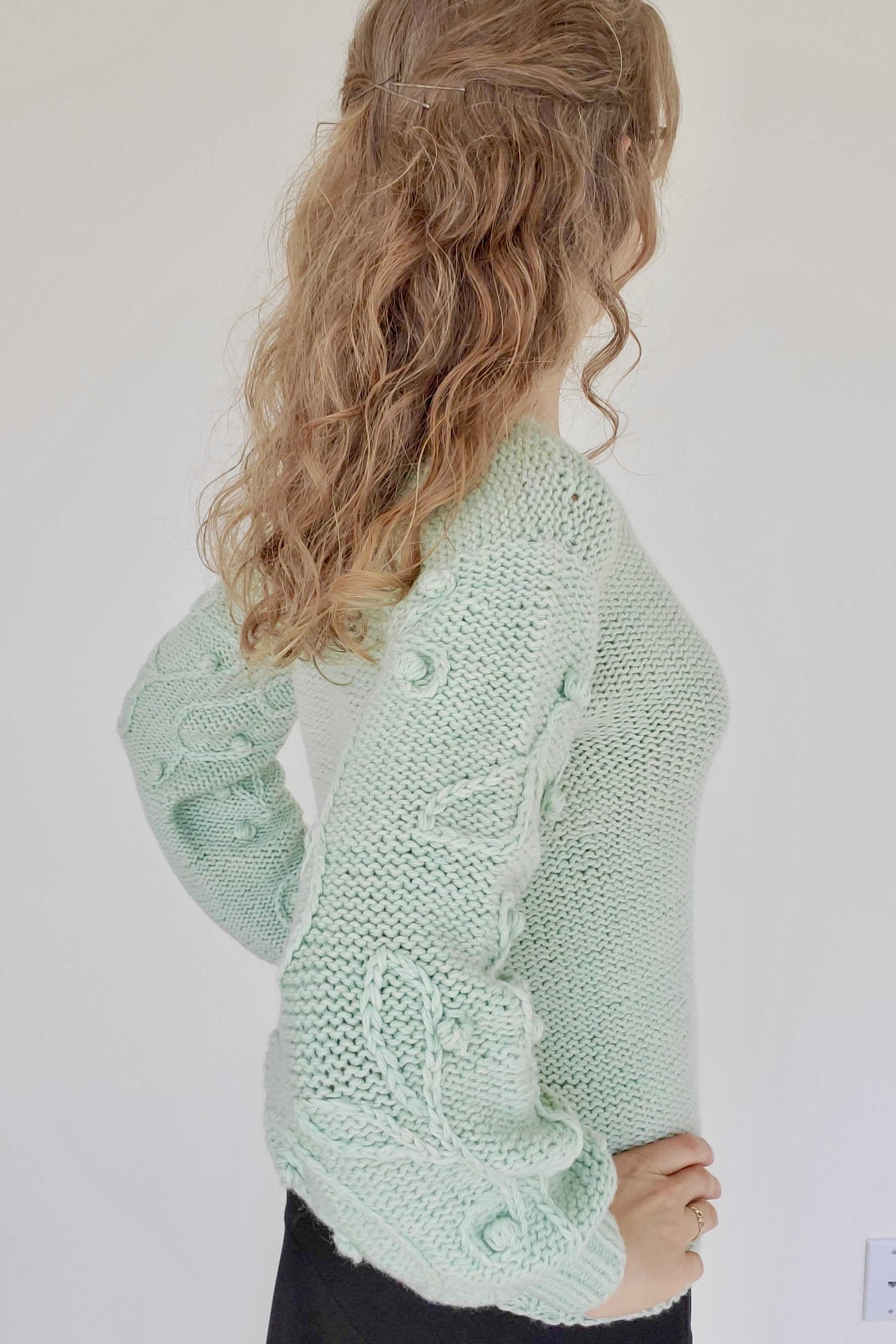
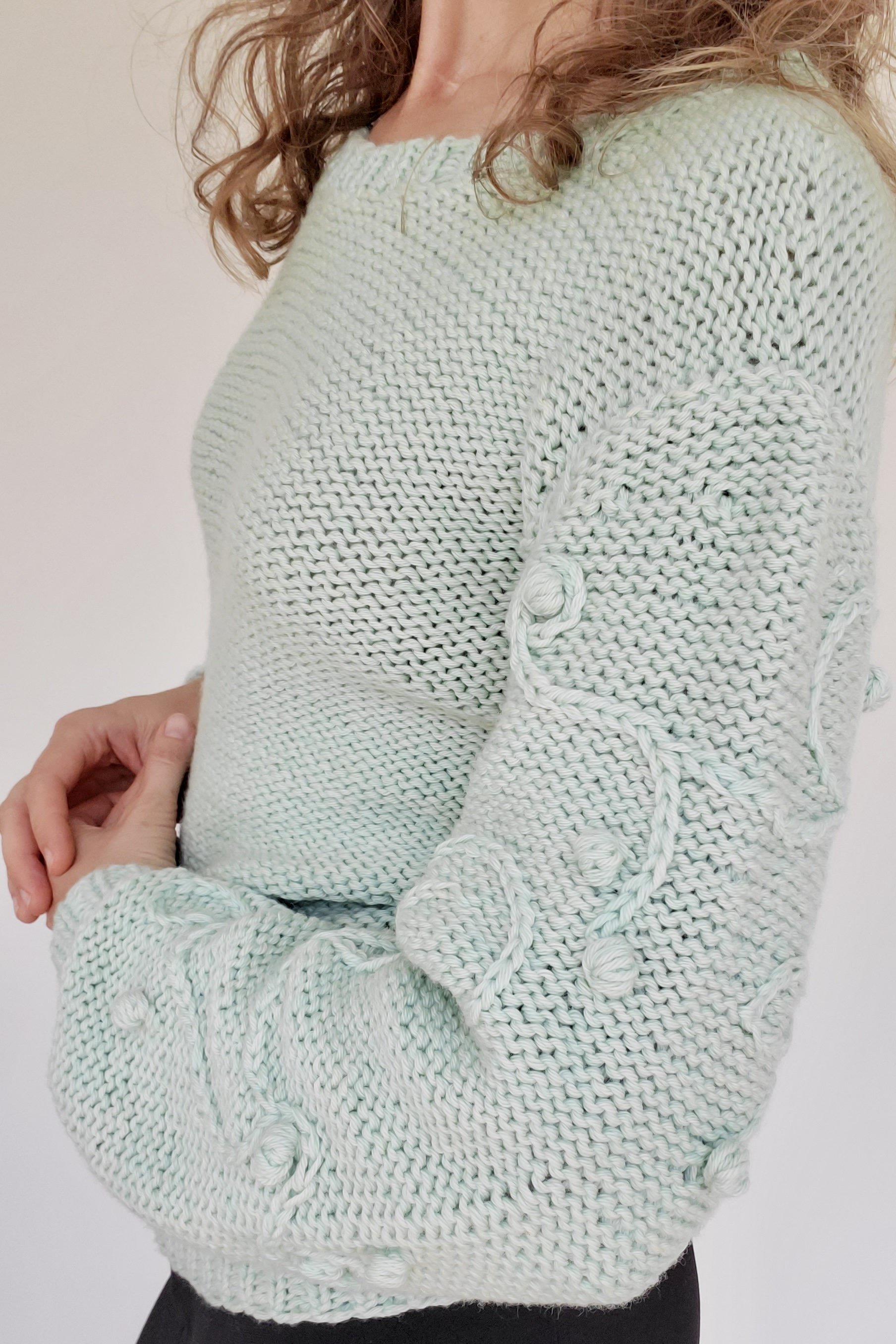
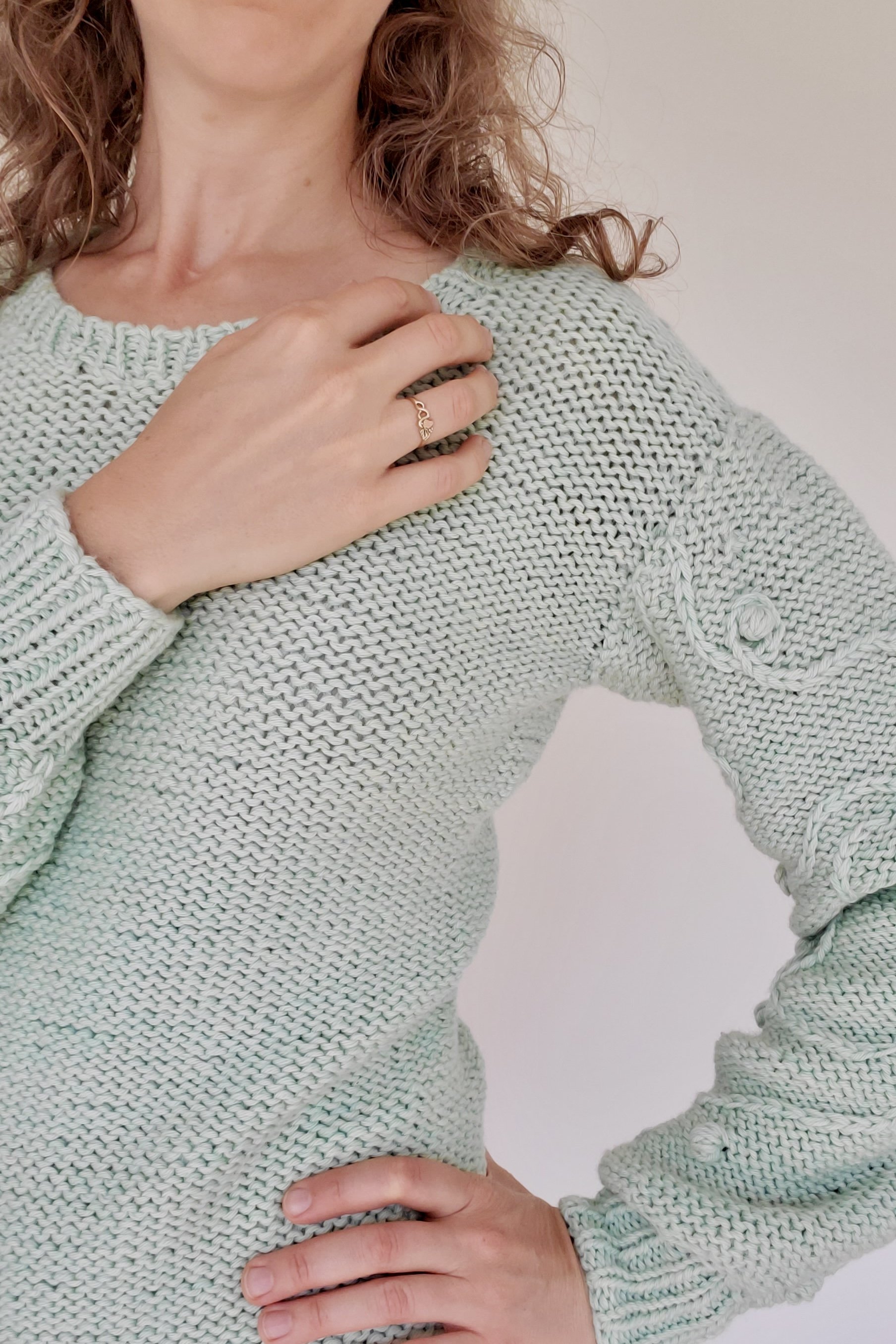
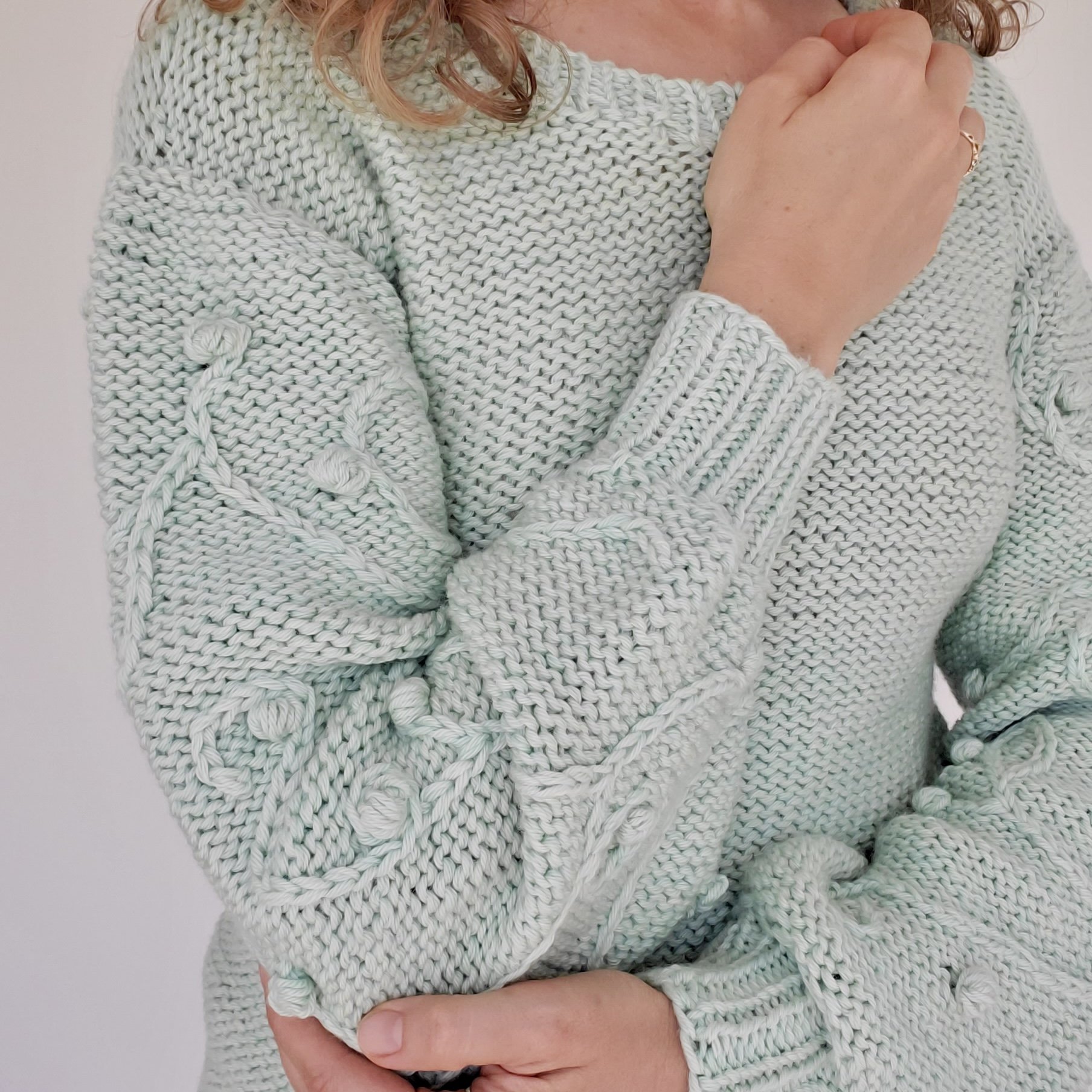
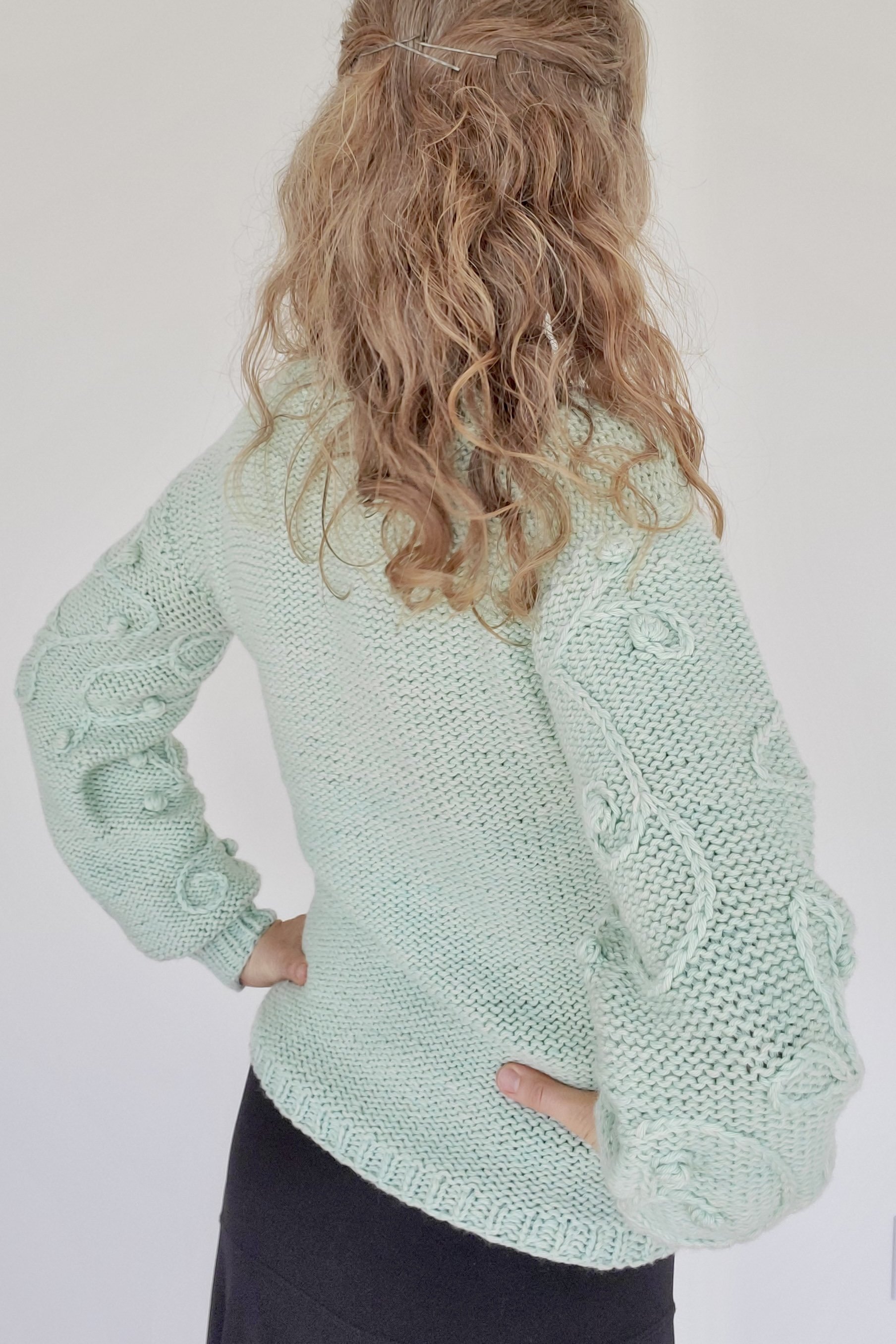
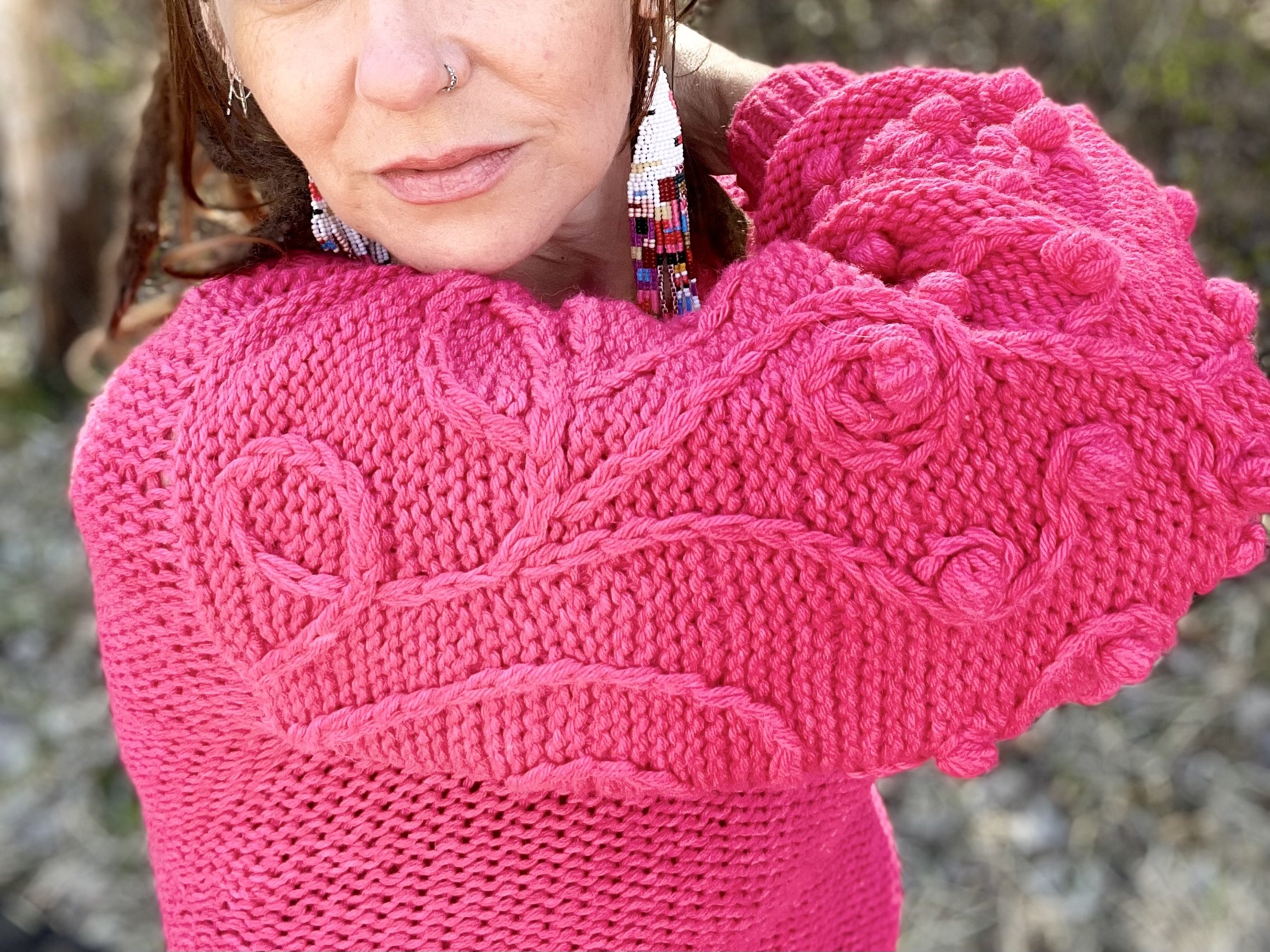
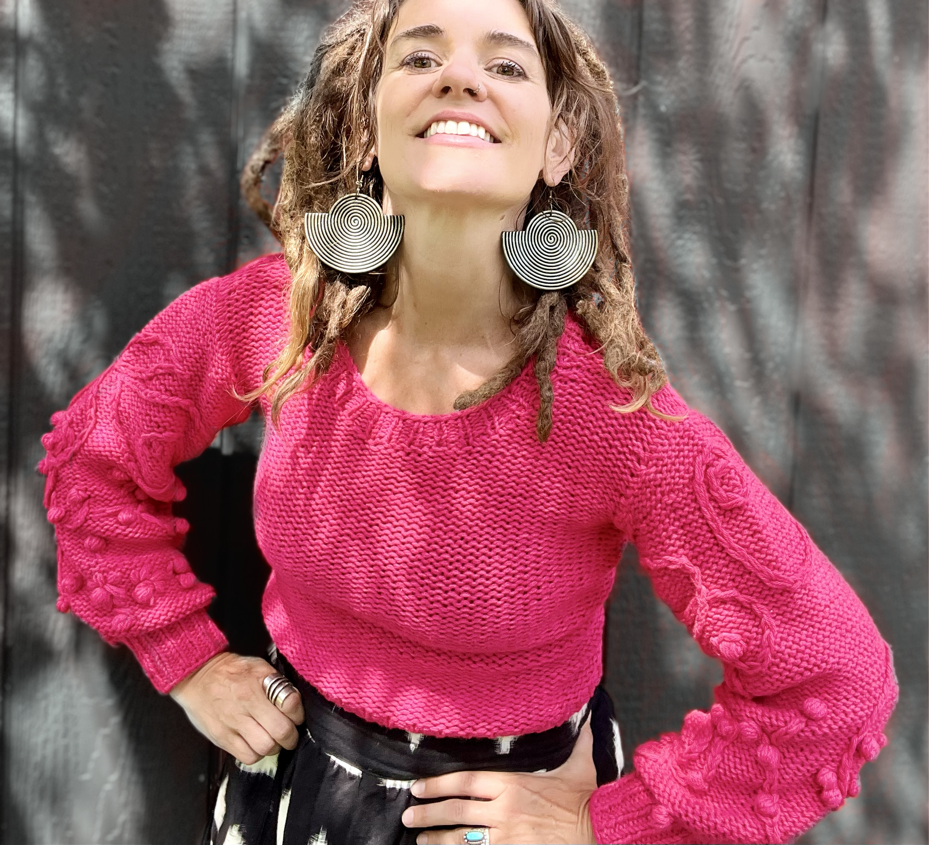
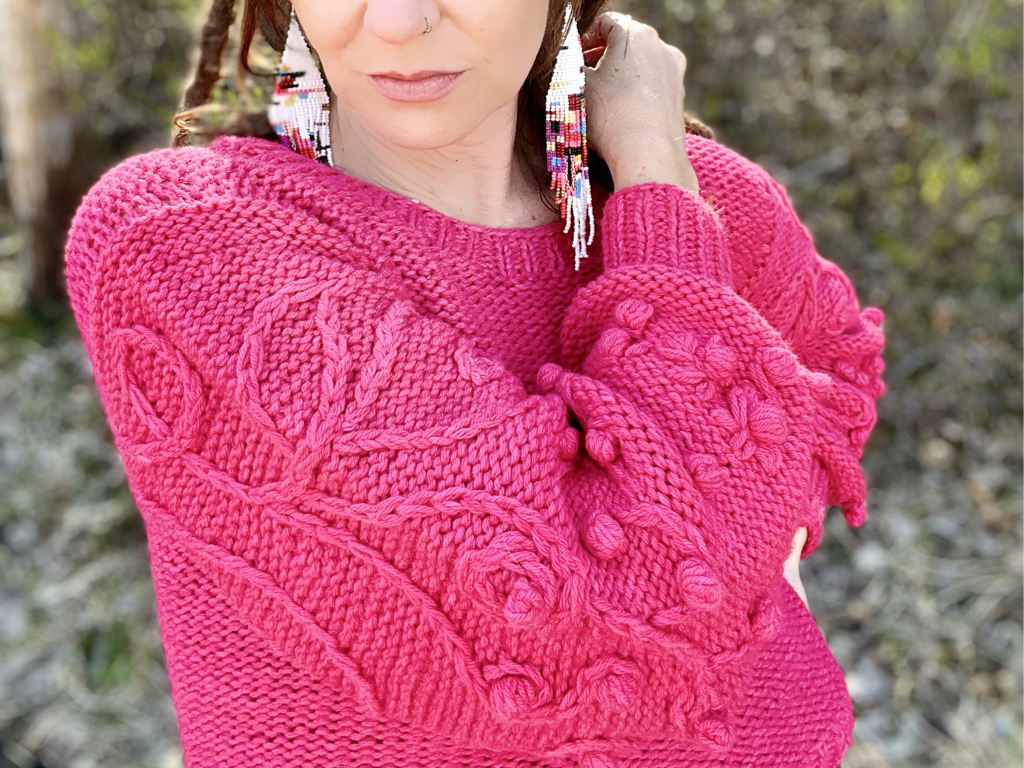
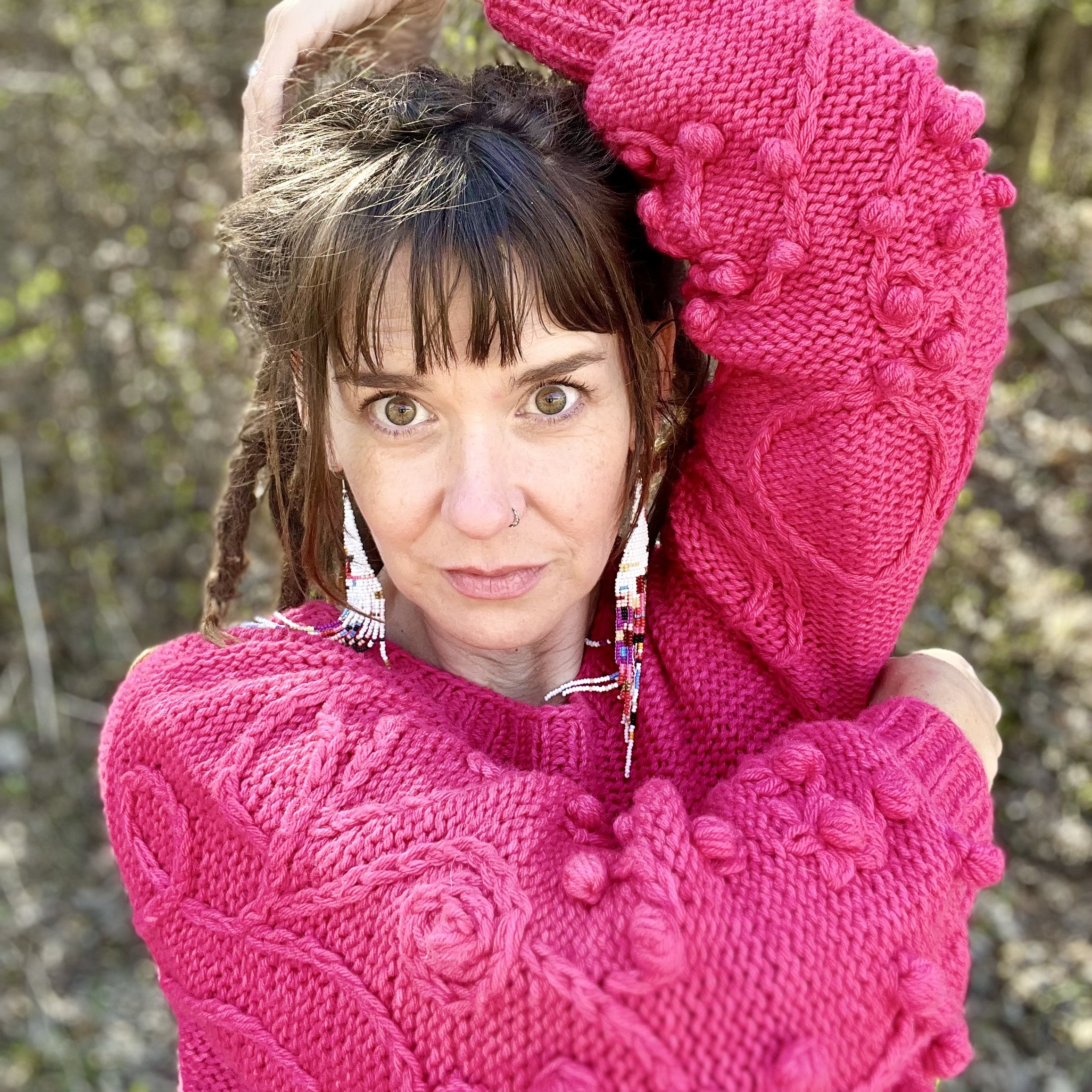
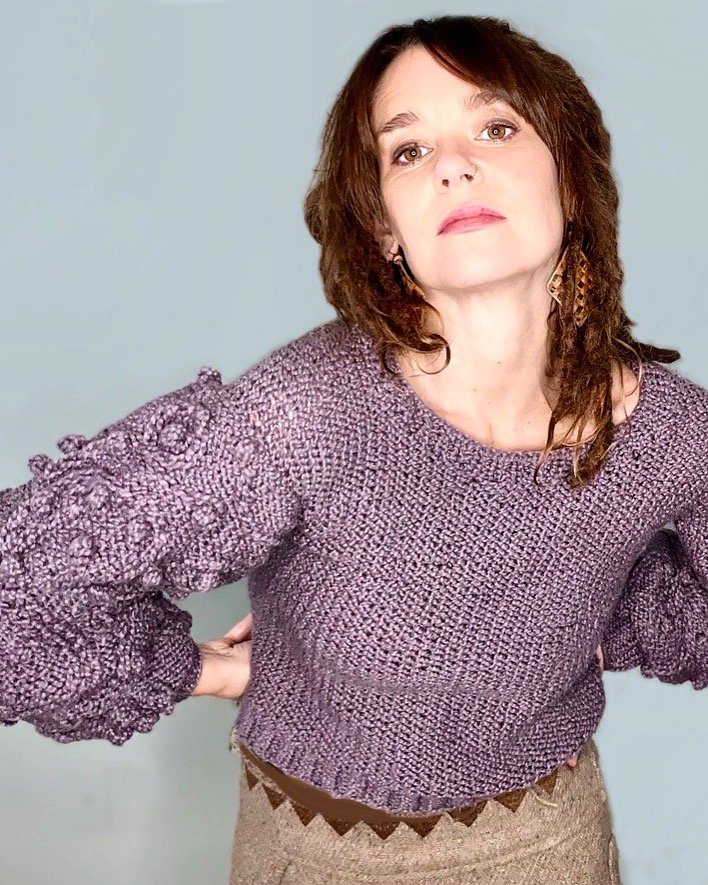
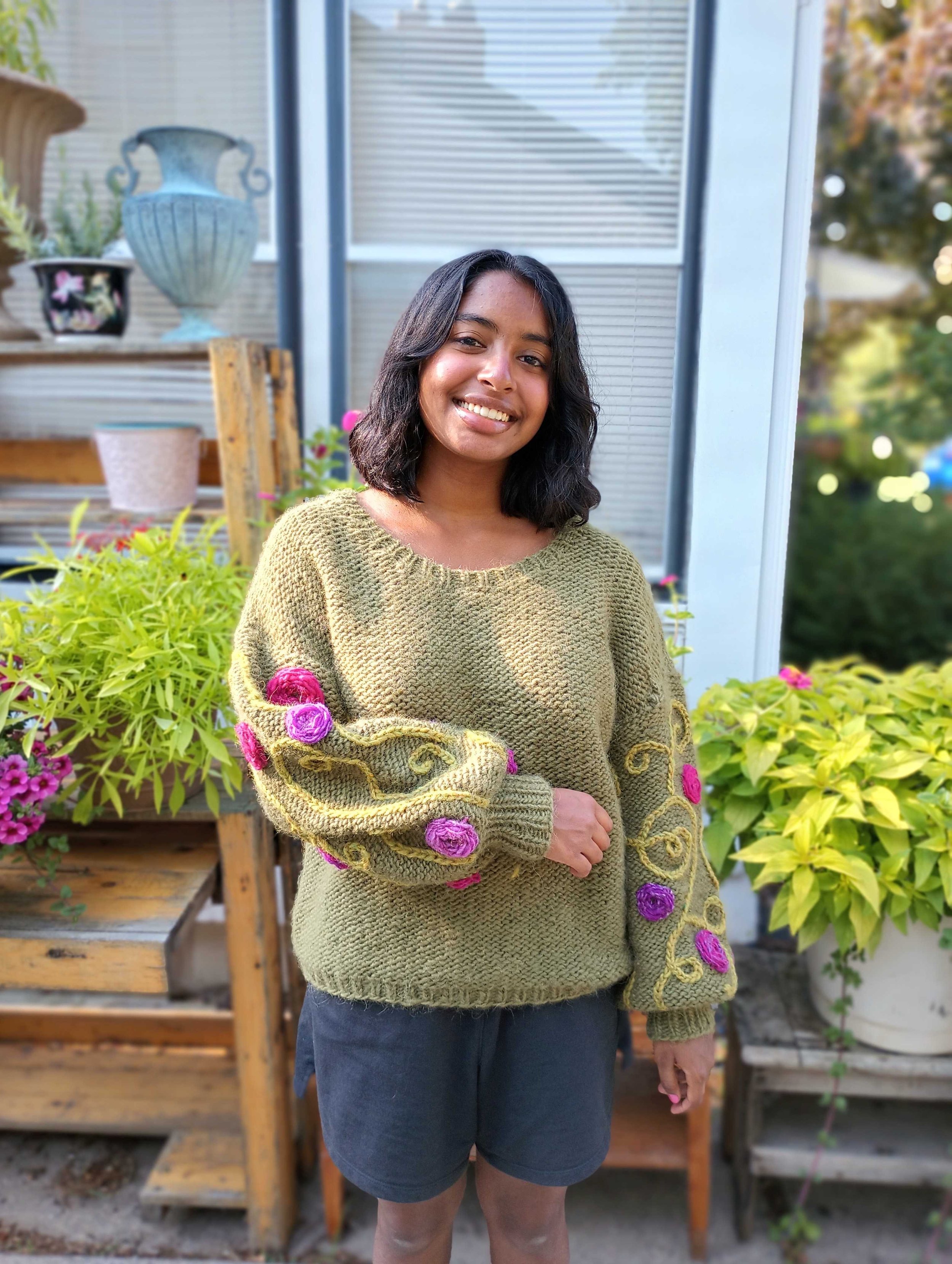
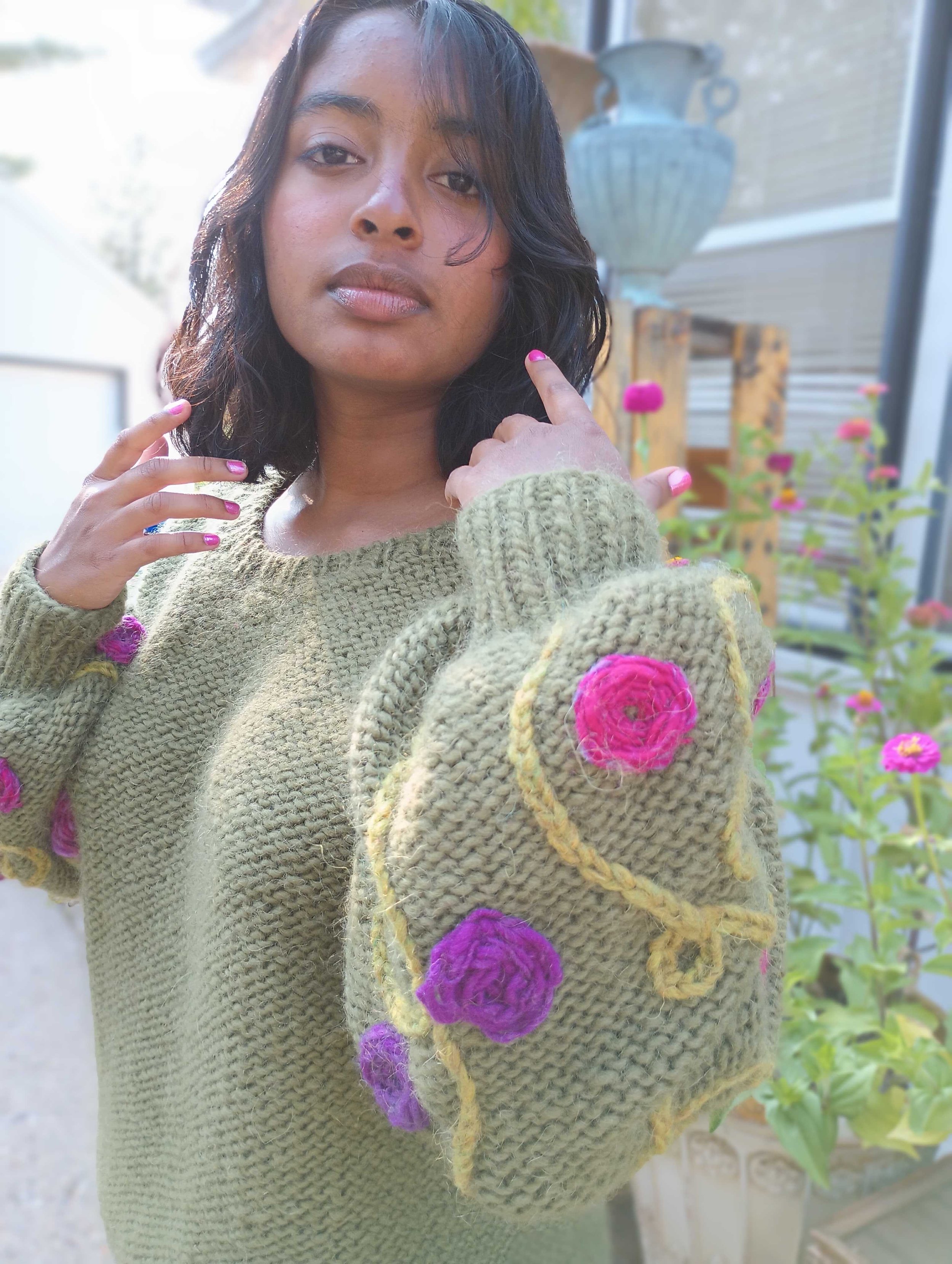
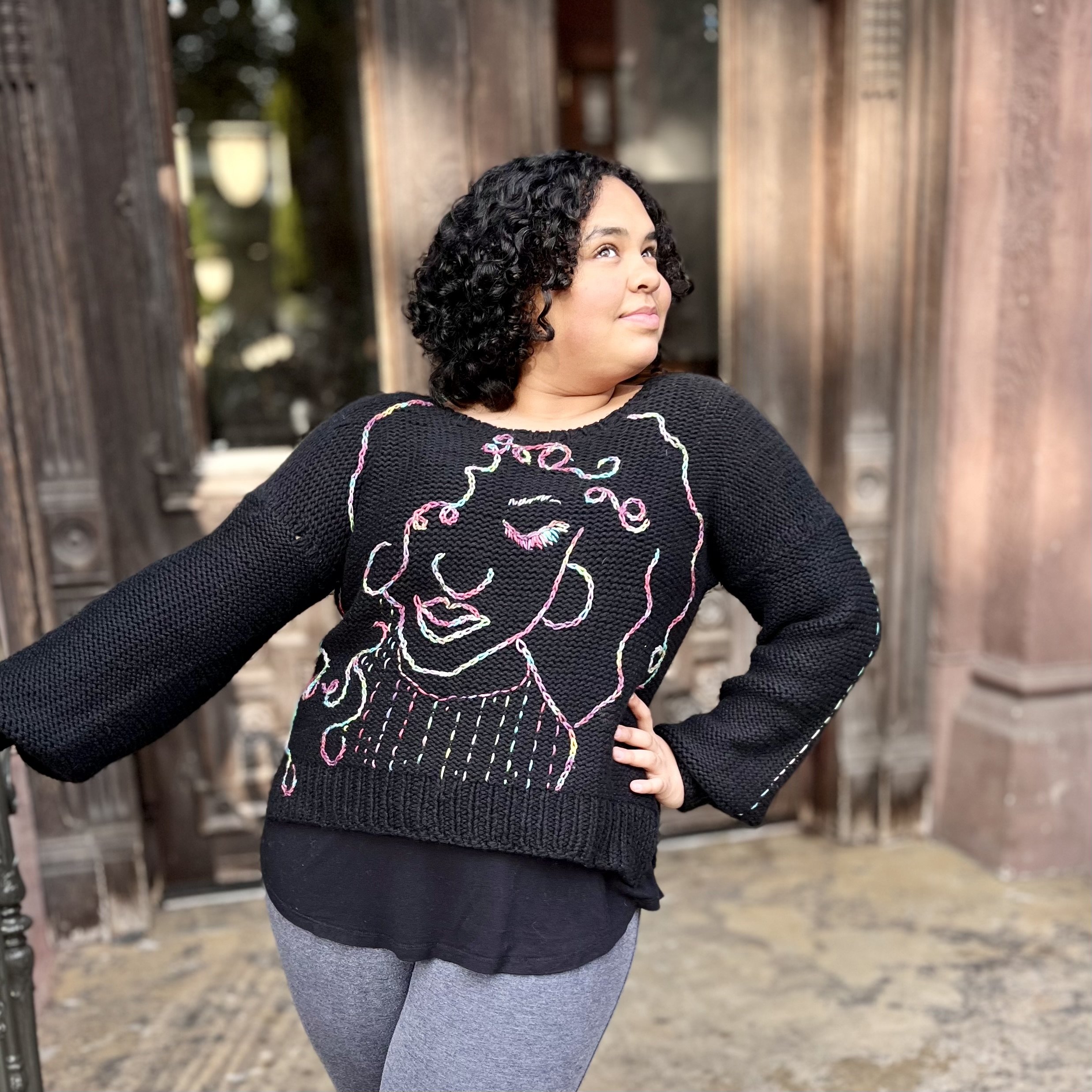
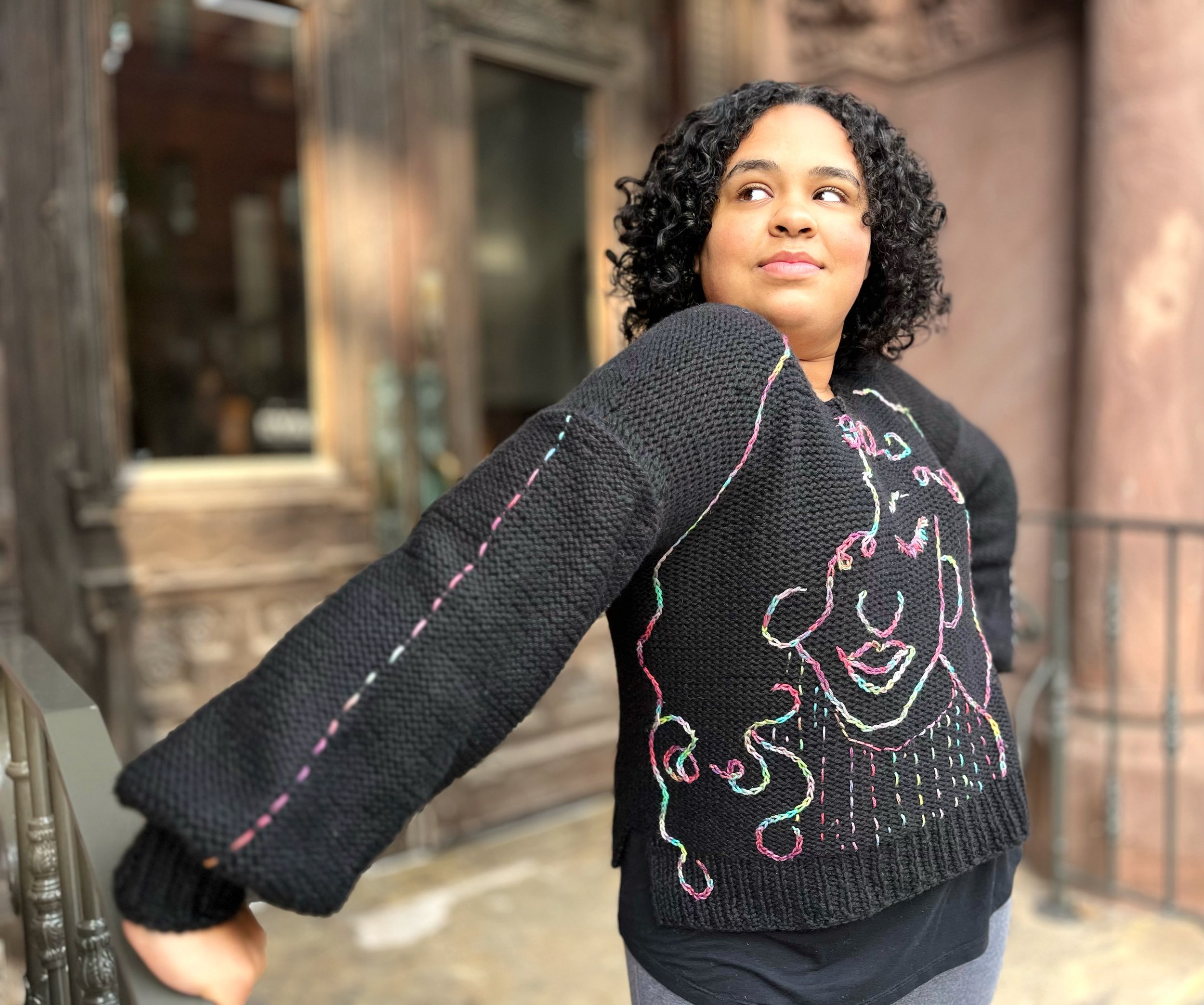
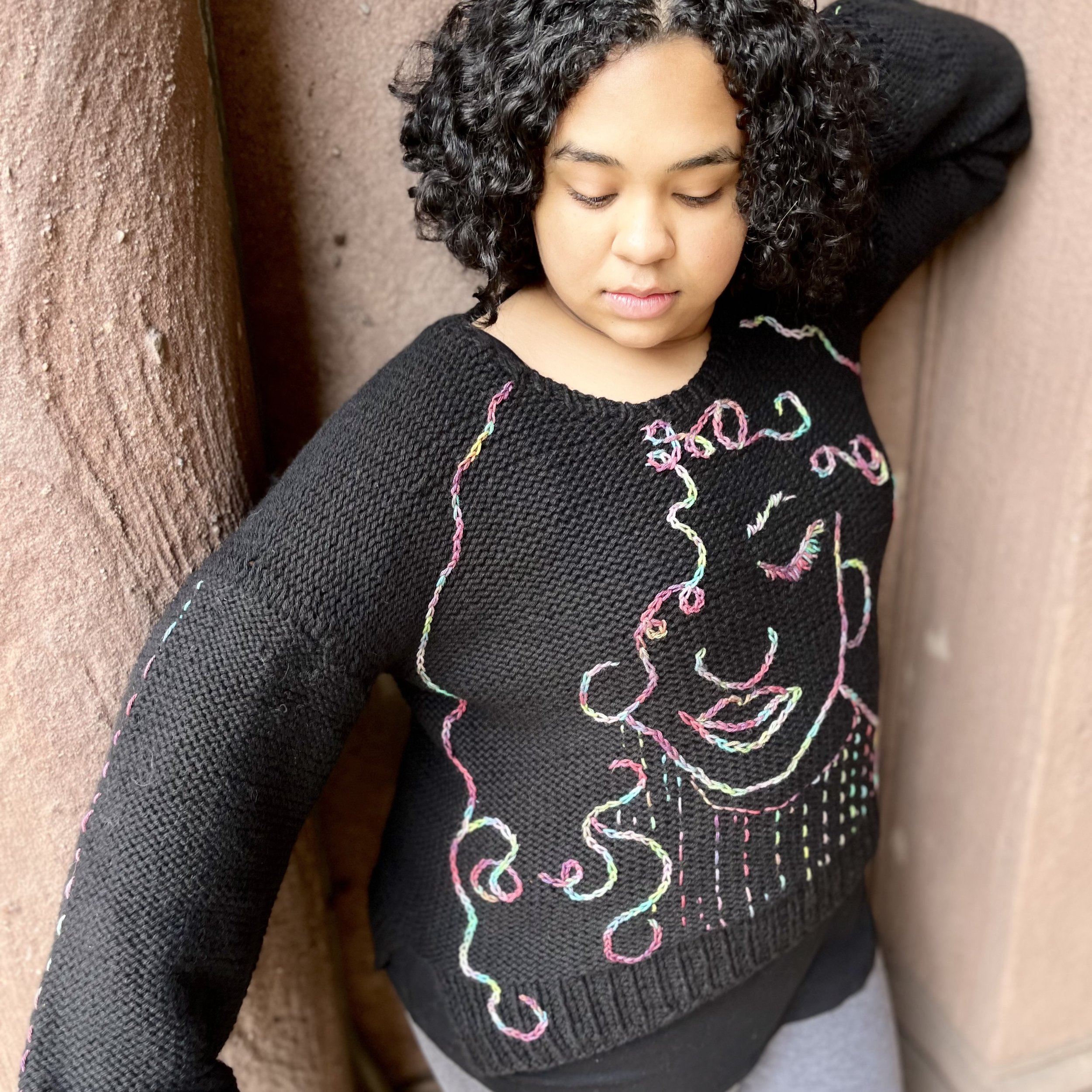
Chiaki Sweater
by Meli Alness
Some sweater in the back of my design-mind for some time, for awhile,
Something I’ve seen
on Etsy?
Big Bobble Sleeves
But why? Why re-design the designed?
~
Because I want to make it and wear it.
That’s valid.
~
A Saori weaving class with Chiaki O’Brien:
“Live in the moment and weave in the moment without judgement.
There are no rules, just don’t break a loom.”
Cool, very cool, I’m gonna like this.
Two hours in, I asked her to help me unroll my project to see what I’d woven thus far. I knew enough about art to know that I wanted some continuity in my fabric. Chiaki smiled, paused, and said,
“I can certainly show you how to unroll it from the loom; but Saori, in the strictest sense, doesn’t allow you to look back at what you’ve made until you’re finished.”
No looking back
Living in the moment
Weaving in the moment
Without Judgement
And then the freedom came.
Do you see it? Do you want it? Can you taste the sweetness?
Goodbye, Inner Art Critic
The sleeves of Chiaki Sweater are a meditation on Saori-style crafting, the practice of making art like a child with no inhibitions. When you want to make a bobble, make a bobble. And after bind off, the fun really starts with a simple embroidery stitch that is quick and so satisfying as you conduct pathways of lines, curves, junctions, and negative space on your Saori sleeve. May the process and the result be
Whimsical
Fun
Freeing
Inspiring
Fantastic
Surprising
and New.
Chiaki Sweater is a high waisted top with a slim fit and slightly dropped shoulders that blossom into wide (and perhaps wild) sleeves. It is worked in the round from the bottom up, then separated for sleeves and worked flat until an unusual but simple join of live stitches at mid-back. Sleeve stitches are picked up and worked in the round with decreases and cuff ribbing fully written in the pattern. You choose when to work bobble stitches and how many to work (or none at all!). After bind off, embroidery is worked on the sleeves according to your taste. Embroidery drawings and video tutorial are included for inspiration.
Yarn
-Reywa Fibers Embrace
(100% Tibetan yak down, DK (2 strands held together), 218 yds/100 g); Colorways: Poppy, Turquoise Light
-Tahki Yarns Hatteras
(100% organic cotton, bulky, 100 yds/100 g); Colorway: Dusty Violet
Yardage
Yardage can vary greatly for this design, due to the improvisational nature of the bobbles and embroidery, and desired length of garment for each knitter. This table is only a guide for estimating yardage. Test knitters used the following yardage:
Size 1 (sample in Poppy)—79 bobbles—modified length:minus 1”—500 yds held double = 1000 yds
Size 2 (sample in Dusty Violet Tahki Yarns)—82 bobbles —modified length: minus 1 cm = 550 yds
Size 3 (sample in Turquoise Light)—33 bobbles —modified length: plus 5.5”—840 yds held double = 1680 yds
Size 4 (sample in olive green w/ yellow & fuschia embroidery—0 bobbles —modified length: plus 1” =600 yds
Size 5—36 bobbles —modified length: plus 1.5”= 800 yds
Size 6 —4 bobbles—modified length: plus 1 cm= 1200 yds
Size 7 —20 bobbles—modified length: plus 3.5”= 1360 yds
Size 8 —0 bobbles—modified length: plus 1”=1320 yds
9Size 9—0 bobbles—modified length: plus 2”= 1400 yds
Gauge
11 sts & 18 rows = 4”/10 cm in stockinette, after wet-blocking (with extra tension pulled width wise if necessary) & dried
Needles & Notions
- US 10.5/7.0 mm circ. needles (varying lengths) or size needed to obtain gauge
Note: for yarns other than Hatteras, you will likely need US 11/8.0 mm needles.
- Circ. needles 1 or 2 sizes smaller than gauge size for ribbing
- Stitch markers, waste yarn, tapestry needle
Sizes
1 [2, 3, 4, 5] [6, 7, 8, 9]
Finished Bust Circumference after blocking:
32 [35.75, 40, 43.75, 48] [51.75, 56, 59.75, 64]”/ 81.5 [91, 101.5, 111, 122] [131.5, 142, 152, 162.5]cm
Designed to fit with 0-4”/0-10 cm positive ease.
